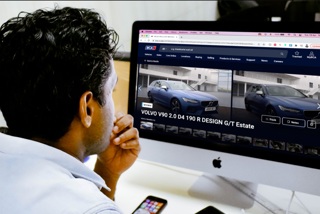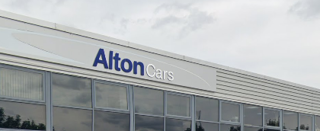Author: Chris Poulsom (pictured), CRM director, MDF Database Solutions
"CRM (Customer Relationship Management) is a buzz phrase being used more and more in the motor industry but it’s nothing new.
CRM as a concept has been around for a very long time but has not really implemented very effectively at dealer level as far as we can tell. It’s therefore no surprise that CRM is a hot topic in the trade press but how many actually understand what CRM really is?
Put simply CRM is exactly what its name suggests.
It’s not about making a call here and there to some customers, contacting customers about their MoT or having a great website for example.
CRM concerns the whole customer ownership journey, it’s about being proactive in the way you manage the relationships you have with your customers for the whole ownership experience, not just parts of it.
CRM involves using data and management information intelligently, implementing timely and relevant multi-channel marketing using phone, email, face to face customer contact and much more.
Customer relationships are probably the single biggest influence on whether you retain your customers or not, drive whether your customers become advocates of your business and brand, in turn leading to more customers, or less where negative experiences are shared.
A negative experience is not necessarily the result of a visit to a dealership, it could also be the result of lack of interaction or bad timing of marketing e.g. a MOT reminder sent 2 months out of date because of poor data capture accuracy or system generated dates.
We tend to find that motor industry businesses are still quite traditional in their approach and in general there still seems to be a divide between sales and aftersales departments. As far as the customer is concerned, the department is largely irrelevant; it is the business as a whole they are dealing with.
If not already, businesses should really be thinking about the long game, what over and above things like price and keeping CSI scores high can be done to generate more business moving forward i.e. through having better relationships with customers.
Customer satisfaction is an ‘indicator’ of whether a customer is likely to return but is measured shortly after the customer visits e.g. for a vehicle sale or service.
However, how does a customer’s attitude change over one, two, three, four+ years of vehicle ownership, especially if they perceive that the only time they hear from a dealer is when you want to sell them something or maybe they hear nothing at all which can be very damaging to relationships.
Past service is a contributor to future business but CSI measures satisfaction after an event takes place, not before a customer is about to make a decision e.g. to purchase a new car or where to have their car serviced.
Attitudes change over time, in order to know when a customer is considering something it requires regular verbal or written interaction, that way you can influence their decision rather than leaving it to who has the best price or who has the best website.
Having the right product at the right price is largely influenced by the manufacturers but despite a vehicle purchase probably being the second largest purchase after a house for most and it being such a competitive arena, the motor industry is some way behind many other industries in the introduction and delivery of a good CRM strategy.
That will usually mean that when the market and products are good, business is good and when they’re not, it’s not. A good CRM strategy could be the difference between businesses having outstanding performance or good performance at worst during harder times.
Some of the most successful businesses and sales teams we have come across are those that have broken down the barriers between departments and have been proactive and consistent in managing good relationships with their customers, not just some but all their customers.
In the motor industry this requires the manufacturer, sales and aftersales departments to all be on board.
A good CRM strategy will be made up to a combination of good processes, good people and good systems. The number of dealers that have documented their CRM strategy and shared it with their employees is likely to be very few with individuals being targeted on very specific areas without understanding the bigger picture or the long term benefits to them personally and the business.
Improving and maintaining good customer relationships is not something that you can change overnight with smart new technology, some training, social media, a great website or a load more staff for example, but they will of course help if implemented well. Software labelled as a ‘CRM System’ only help to deliver a CRM strategy, it isn’t the strategy itself.
Some processes may be centralised or outsourced which can bring benefits of efficiency and consistency but how you do this whilst getting customers feeling like they have a good relationship with your business can be a challenge and we have seen many get it wrong. We have seen many focussing heavily on winning the business today but end up losing the customer for life.
It takes time to introduce a good CRM strategy but the sooner businesses make the commitment and agree on a strategy, perhaps with some outside help, the sooner they can start to engage their teams and make the change. If done right this will undoubtedly lead to increased retention and being further ahead of competition."




















Brad Hodson - 12/06/2014 00:36
This is exactly right. CRM isn't just a glorified contacts app. When accompanied with a proper strategy, it can become a powerful tool to improve customer relationships, especially during growth. It's impossible to manage all the relationships of a growing company, no matter how large and capable your sales force is. You need CRM in order to continue providing consistently high quality relationships to new and existing customers who are, frankly, hungry for it. Brad Hodson JobNimbus, http://www.jobnimbus.com